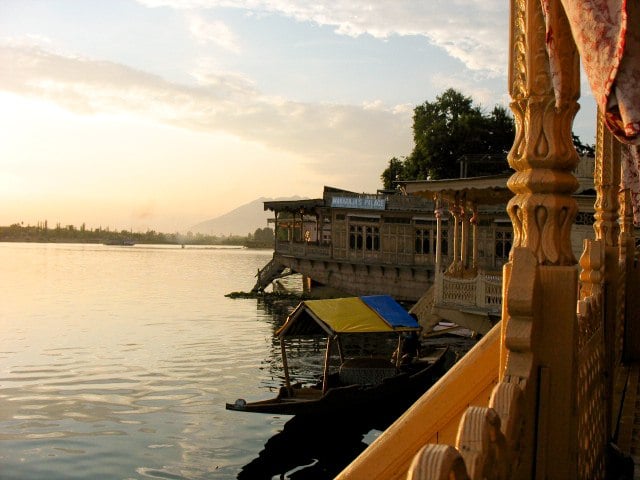Search for topics or resources
Enter your search below and hit enter or click the search icon.
August 6th, 2019 | 2 min read

When I was nine, we went to Kashmir for ten days or so, to Srinagar, one of the hill stations, to get out of the Delhi heat. Rented a houseboat. When my mom was growing up, her family would go every summer, for the same reason— you just can’t be in Delhi in June.
I learned to water-ski. Every day, little grocery skiffs would pull up next to the houseboat and we’d buy what we needed— produce, recently-dead chickens. Round blue-and-white tins of Nivea, for some reason— I associate the scent of Nivea with Kashmir, and the smell of charcoal fires, and the scent of the sandalwood that made up the intricate carvings in the interior of the houseboat. I got a lot of splinters in my feet, because I was barefoot all the time, and my mother picked them out with tweezers. We got invited to dinner with the man who owned the land on the lake-shore.
It was the most beautiful place I’ve ever been, strange and wild— Wild West-style wild. On an overnight horseback trek up the glacier, that we went on as a sort of vacation-within-the-vacation, we saw a group of dacoits – bandits. They were on horses, riding along the ridge next to ours. You could see the silhouettes of their rifles strapped to their backs. I suppose they might have been guerillas, separatists– the distinction between guerilla and dacoit can be a fuzzy one, in Kashmir.
Yesterday, Indian Prime Minister Narendra Modi finagled the erasure of Article 370 from the Constitution, which had protected Kashmir as a separate political community.
Kashmir has been occupied by the Indian army for years, and in the lead up to this, Modi shipped thousands of satellite phones to the army, then had the cell network cut, to prevent the Kashmiris from being able to communicate.
Not all theocratic postliberal statism is good. Smaller political communities shouldn’t be swallowed up just because a demagogue can manage it.
What’s interesting is that this is called “undemocratic” by the New York Times. Of course it is no such thing. There was no constitutional referendum, but if there had been, it would have carried easily. The wrong here is not a wrong against democracy, it is a wrong against polity, against what Johannes Althusius called symbiotic jus.
Of course there will be many pieces, there have already been many pieces, talking about this as a violation of Kashmir’s right to self-determination. There will be others talking about this as a violation of the Constitution– that the annexation was not done according to proper procedure.
The central point, though, is elsewhere. Modi himself had a duty to protect Kashmir as itself, as the political community that it is. He failed in that duty.
Susannah Black Roberts is senior editor at Plough. She is a native Manhattanite. She and her husband, the theologian Alastair Roberts, split their time between Manhattan and the West Midlands of the UK.
Topics: